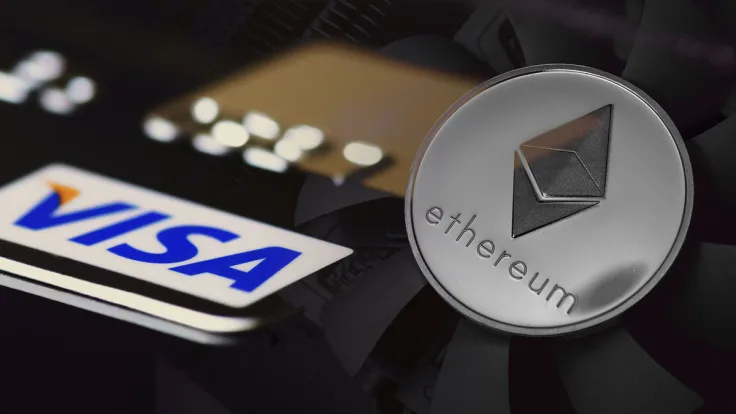
Disclaimer: The opinions expressed by our writers are their own and do not represent the views of U.Today. The financial and market information provided on U.Today is intended for informational purposes only. U.Today is not liable for any financial losses incurred while trading cryptocurrencies. Conduct your own research by contacting financial experts before making any investment decisions. We believe that all content is accurate as of the date of publication, but certain offers mentioned may no longer be available.
Visa is increasingly immersed in the cryptocurrency market even though it is a centralized company. This time, the Ethereum (ETH) blockchain made it on the company's radar.
This is a major achievement for both the traditional market and the blockchain medium. After all, in addition to the power of Visa's user experience, holders of the market's leading altcoin may soon see automated payments coming to the crypto network.
The integration with Visa, in theory, means that ETH holders can use their assets on a daily basis for a simple payment, such as an electricity bill. However, the substantial difference is that this process would be more convenient through the Account Abstraction concept, a solution presented by Vitalik Buterin in 2015 and which took shape with the EIP-86 in 2017.
Issue
Currently, crypto market self-custody wallets do not facilitate automated payments in the same way that banks do, and banks have the problem of being centralized and taking custody of their customers' assets.
If you need to schedule your rent payment for the fifth of every month, for example, you can do this quickly through a banking app, but you will not be able to do the same through your Ethereum wallet with an externally owned account (EOA), or simply user account.
Besides, the advantage of being your own bank is that only you own your private key.
Except for wallets that are multi-signature, only you can let values be transferred from your account. In other words, a company cannot simply debit an amount from your cryptocurrency wallet.
While this is a factor that brings security, it also makes it difficult for services that have an automatic debit option to arrive on the crypto market.
It is precisely to solve this obstacle of day-to-day payments that Account Abstraction was suggested.
What is Account Abstraction?
According to the paper presented by Visa, an Account Abstraction-based wallet would work as a smart contract where its users could schedule transactions without the need to sign for them.
When Buterin proposed the enhancement as something to be implemented in Ethereum over years, the proposal was not approved as it was considered difficult to implement.
However, the essence of the project was recently revived through EIP-4337 in 2021. Now, the challenge is to implement Abstraction without making consensus-layer protocol changes. Everything would be accomplished using the upper layer infrastructure.
As a result, the user account would be merged with the smart contracts account, allowing payments to be scheduled, and in only one account to perform transactions and create smart contracts.
Although Account Abstraction still proves to be a long way off, it could be a major catalyst for ETH adoption, which should improve the user experience by the end of the Ethereum 2.0 transition.
 Denys Serhiichuk
Denys Serhiichuk Gamza Khanzadaev
Gamza Khanzadaev